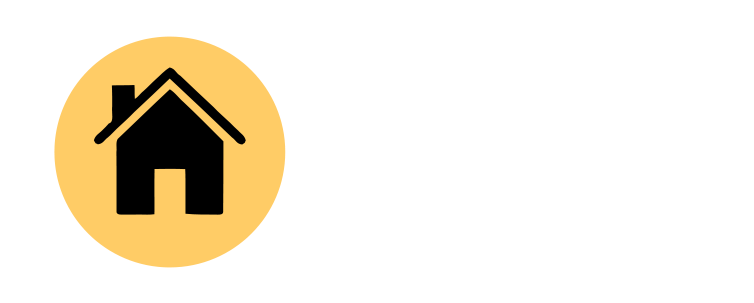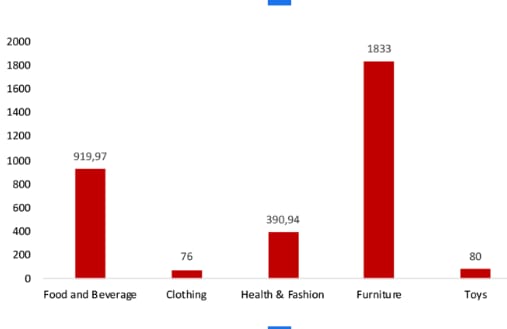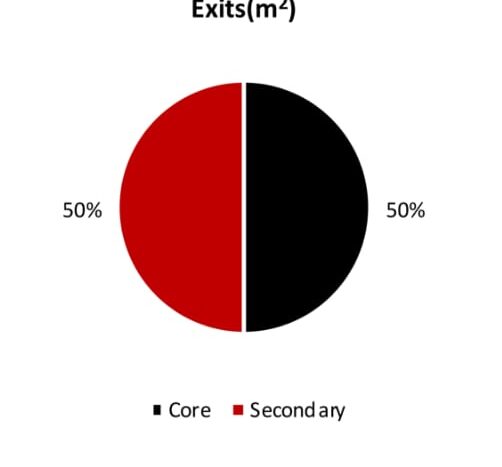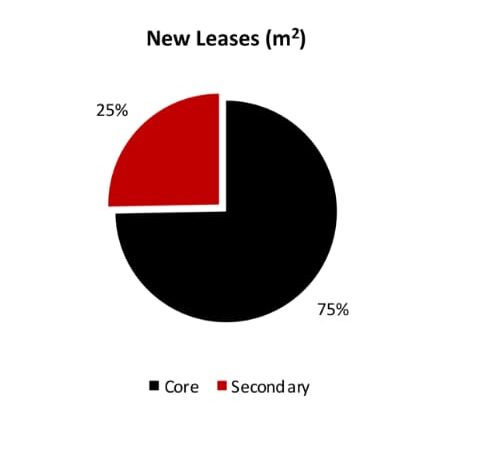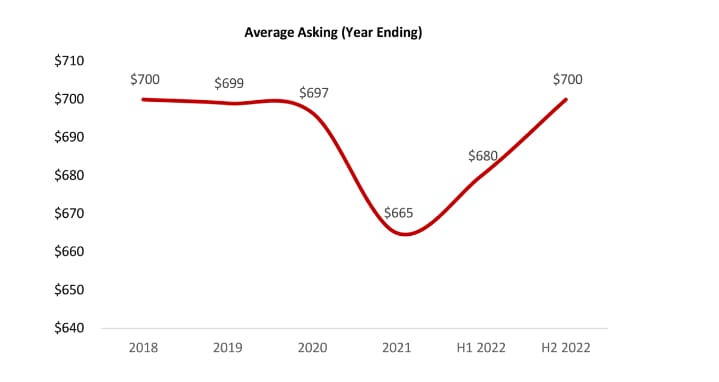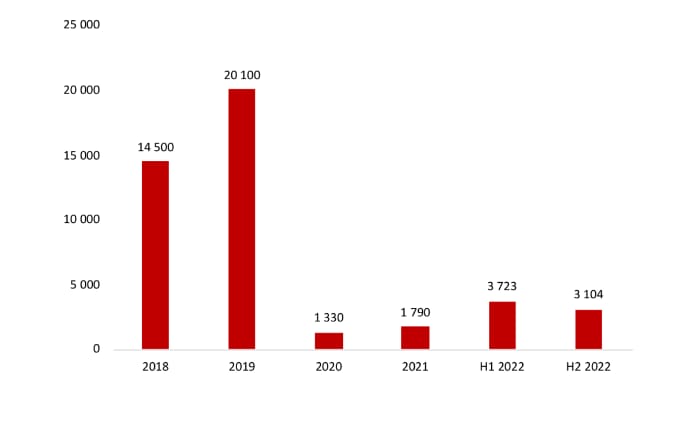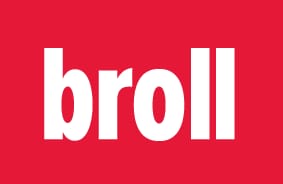Broll’s H2 2022 Reports on the Office and Retail Markets
Founded in 1975, Broll Property Group is one of Africa’s leading commercial property services companies with offices in major cities and towns in South Africa as well as operations in Angola, Cameroon, Ghana, Indian Ocean Islands, Ivory Coast, Kenya, Malawi, Mozambique, Namibia, Nigeria, Swaziland, Uganda and Zambia and provides real estate services in other African countries. Recently, the Group released two reports on the Commercial real estate sector in Nigeria: Nigerian Retail Market Viewpoint: H2 2022 and the Nigeria Office Market Viewpoint H2 2022. Both reports reviewed the commercial property sector in the second half of 2022. Below are some excerpts from the reports:Overview of the retail market:
The formal retail market in Nigeria continued its growth trajectory in the second half of 2022, sustaining
a 1% growth rate and maintaining an average occupancy of 96%, compared to 95% in the first half of the
year. This indicates that the market is becoming increasingly robust and stable as more businesses establish themselves and consumers continue to demand formal retail options. The sustained growth and high occupancy rate are likely due to various factors, including a growing population, increasing urbanization, and improved domestic consumption. As the market continues to expand, there may be opportunities for new entrants to establish themselves and capture a share of the growing demand for formal retail options in Nigeria.
The formal retail market saw a 51% drop in new leases in the core market and a 1.14% increase in secondary market locations may be due to several reasons. A global surge in energy costs had a significant impact on the retail sector, with many businesses facing financial difficulties or uncertainty due to a sudden increase in energy with market fundamentals held fast as businesses are forced to look elsewhere. This subsequently led to a decrease in demand for new leases as businesses look to cut costs and conserve capital. Additionally, Nigerians’ continuous adoption of e-commerce and online shopping has also played a role, as some businesses may be shifting their focus toward digital channels rather than physical retail locations. A general slowdown in the economy or a lack of investor confidence is also a contributing factor, which could lead to a decrease in new lease activity. Rental rates remained unchanged in the secondary market despite the retail market reporting a high waiting list.
Circle Mall resumed operations following its shutdown due to the EndSars protest which led to the mall shutting its doors. Major projects in the pipeline such as Galaxy Mall in Kaduna will provide positive competition to the market and an option to tenants who have been on the waitlist. However, this major development has been dwarfed by community retail stores which are medium to small scale.
Leasing Activity
The Nigerian formal retail market experienced a significant decline in new leases during the second half of 2022, with a drop of 53% in both core and secondary retail markets from 7611 leases in the first half of the year to 3544.75 in the second half. Despite this decline, there were still specific sectors that demonstrated strong demand. Food & Beverage, Mobile Phones & Accessories, Health & Fashion, and Furniture emerged as the leading sectors driving demand for retail space. This indicates that these sectors remain resilient and continue to show promise despite the overall slowdown in the market.
Demand Activities – New Leases Signed (m2)
Source: Broll Database
Market Out Look
The core markets are expected to remain resilient in the face of adversity as they recorded higher rent rate and occupancy rates. There has been a noticeable trend of indigenous brands moving into the core market, challenging established global brands. This can be attributed to several factors, including increased access to technology, rising consumer confidence in local brands, and a desire to support local businesses. Furthermore, indigenous brands can tap into local knowledge and cultural nuances, allowing them to create products and services that resonate more with local consumers. As a result, we are seeing more and more indigenous brands becoming major players in the core market, signaling a shift in consumer preferences and a growing appreciation for locally-made products.
Rent is expected to surge higher if the energy cost is not controlled leading to tenants opting out or asking for more concession on electricity cost which is not a normal market practice. The election outcome will determine how resilient the retail market can be as we expected a rough transition that may lead to further deterioration of the economy which could further impede the market from reaching its potential and a continuous disruption in some secondary markets is expected to continue depending on the outcome of the election.
Read a free e copy of Castles Lifestyle every week
Overview of the office market
The office market in H2:2022 outperformed forecasted expectations as the absorption rate and asking rent increased. The usual demand drivers continue to be driven by the oil and tech sectors which are the largest takers and inquiries. Alternative sectors such as health care also contributed to new leases signed during the period.
H2:2022 improved by recording a higher quantity of take-up space almost matching the volume of the first half of the year. We have also seen a higher renewal rate with a minimum of three years’ lease signed with options to further. Tenants in the office market are pessimistic that the economy within the next 6 months does not change which will affect their willingness to take up more office.
Take-up and absorption rates are still significantly below pre-covid levels.
Highlight Office Market
Total Stock: 175,272m2
H2:2022 Completions: 0m2
Under construction: 126,134m2 H2:2022 Average Lease Area: 387m2 Total Vacancy: 24%
Top Occupier: Professional Services Price Takers: Landlord
Landlords Perspective
Landlords are cautiously optimistic about the market returning to a similar level of activities recorded before the global Covid-19 pandemic. To retain their existing tenants or attract new tenants, the landlords conceded to rent reduction and incentives to existing tenants and to attract new tenants. Flexible leases and rent-free periods are among the few concessions and incentives offered by landlords to their tenants which are not normal market practices. In the period, observed, several inquiries circulated in the market as the result of existing tenants at prime-grade buildings looking at benchmarking and exploiting offers to renegotiate their current leases for more favorable terms.
Take up
The office market saw a dip of 19% in new leases signed in H2 2022 as it continues its recovery. Although there was a dip in new take-up leases, interestingly, a high quantity of leases was signed in H2 2022 reflecting a fraction of the volume of inquiries made in the market. V.I. continues to drive the market by recording 54% of the total leases signed in H2:2022 while Ikoyi recorded 46%.
Source: Broll database
Tenants Preference
Tenant’s preferences drive the market. It is a race among the landlords who can best provide these preferences and will have the advantage of attracting more tenants. Although these are not typical market practices, we are in a dynamic and peculiar market that has evolved. The pandemic introduced non-traditional practices which are forcing modern-day practices such as hybrid systems and sustainable practices. We observed the emphasis tenants placed on flexible leases, accessibility, a safe environment, and security at top of their priorities when considering acquiring a space.
A flexible lease gives the tenants the option to opt out of a long-term lease. Traditional lease range 5 years and more, however, tenants are looking at shorter leases where they can easily adjust their current requirements based on performance preference change. Additionally, in terms of flexibility, occupiers are seeking co-working and hot-desking solutions that significantly reduce their take-on costs and set-up period, as a way to manage workplace set-up for the short to medium term.
Join Castles Lifestyles newsletter to get the latest real estate updates
Vacancy
Vacancy levels declined from 42% at the beginning of 2022 to 24% for the second half of 2022 a 57% drop in vacancy rates. The vacancy rates are returning to pre-pandemic rates.
Pipeline
Famfa Tower, an A-grade office development expected to be delivered in Q1 2023 will no doubt will change the dynamics of the Lagos office market. Its size and quality will force a conversation amongst landlords in the A-grade office market. Current pipelines or projects under construction are mostly located in the Ikoyi and VI with 45% and 55% respectively. These two locations are considered prime locations for commercial real estate that drives the office market.
Source: Broll database
Outlook
Asking rents grew in the second half of the years, with landlords asking an average of US$700/m2/annum a 1.7% growth from H1:2022 in the A-grade office. Headline rents remained the same, however, incentives were offered to attract new tenants and retain existing tenants. With the expected delivery of new stocks into the market tenants will have the power to bargain and landlords will do almost everything to keep their tenants.
Demand
Current market fundamentals, there is a strong possibility of sustained demand in the prime and grade-A office market over the next six months. This expectation is driven by factors such as strong economic growth, favorable regulatory policies, and positive business sentiment. These factors are expected to create a conducive environment for businesses to expand and invest in premium office spaces, which will drive the demand for prime and grade-A office properties. However, external factors such as geopolitical risks and elections outcome could have an impact on this projection
Supply
Based on current market trends and the anticipated delivery of Famfa, it is expected that there will be a significant increase in the office supply in the next six months. This can be attributed to the expected increase in demand for office products and supplies resulting from the expansion of businesses and growth in the economy. The arrival of Famfa is likely to contribute to this growth as it will provide businesses with the necessary resources to expand their operations and increase their productivity, leading to an increase in the demand for office supplies
Rent
Supply and demand dynamics in the prime and grade-A office market, it is projected that the rental rates will remain stable over the next six months. This is largely due to the equilibrium between the limited supply of high-quality office space and the steady demand from businesses seeking such accommodations. Factors such as economic growth, occupancy rates, and rental trends have all been taken into consideration to arrive at this forecast. Therefore, it is expected that rental prices for prime and grade-A office spaces will remain constant in the near term.
Market Outlook
Contacts
Broll Nigeria
Physical address: 3rd Floor, Number One, 1 Akin Adesola, Victoria Island, Lagos
Phone: +234 1 270 1890Email: nigeria@broll.com
Website: www.broll.com.ng
Senior Research Analyst
Broll Nigeria
Chun Gwom +2348162895643
